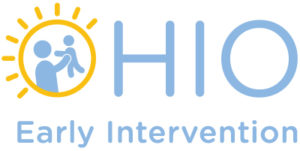What is Early Intervention?
Early Intervention is a statewide system that provides coordinated services to parents of young children with disabilities.
Early Intervention (EI) is a Coordinated System
EI services support parents of infants and toddlers with disabilities. EI is grounded in the philosophy that young children learn best from familiar people in familiar settings. That’s why your local EI team, which includes a service coordinator and service providers, works with you in your home or other places you and your family spend time to develop a coordinated plan.
EI is built on a Developmental Approach
EI builds upon and provides supports and resources to assist parents and caregivers to enhance children’s learning and development through everyday routines. It is a collaborative, home and community-based system where you and a team work together to provide ongoing support to your child.
The Role Of The Family
Recognize the critical role you and other caregivers play in your child’s development.
- Share your interests, priorities, needs and questions with your primary service provider
- Set goals based on how your child’s progress fits with what is important to your family
- Learn from the team so you can work with your child during the family’s everyday routines between visits from the interventionist
The Role Of The Intervention Team
Use child and family interests as the foundation for intervention
- Partner with parents and other caregivers to support children as they learn and grow
- Focus on enhancing child participation in existing and desired family community, and early childhood experiences
- Work together so that each team member’s expertise will be used to help parents meet the goals they have for their child’s development
- Help families find answers to their tough questions
Principles Of Early Intervention
- Infants and toddlers learn best through everyday experiences and interactions with familiar people in familiar contexts
- All families, with the necessary supports and resources, can enhance their children’s learning and development
- The primary role of a service provider in early intervention is to work with and support family members and caregivers in children’s lives
- The early intervention process, from initial contacts through transition, must be dynamic and individualized to reflect the child’s family members’ preferences, learning styles and cultural beliefs
- IFSP outcomes must be functional and based on children’s and families’ needs and family-identified priorities
- The family’s priorities, needs and interests are addressed most appropriately by a primary provider who represents and receives team and community support
- Interventions with young children and family members must be based on explicit principles, validated practices, best available research, and relevant laws and regulations
In Ohio, the Early Intervention Program fulfills the federal Individuals with Disabilities Education Act (IDEA), Part C (Early Intervention program for Infants and Toddlers with Disabilities).
The full text of the law is online at idea.ed.gov/download/statute.html.
Early Intervention
45 North Road, Niles, OH 44446 | Phone: (330) 652-1688 | Fax: (330) 299-0019
Lisa Casassa
Early Childhood Director, ext. 145
[email protected]
Kenya Franklin
Early Childhood Supervisor, ext. 125
[email protected]
Meet the Team

Beth Adams

Terri Ahladis

Kristyn Bugnone

Lisa Casassa

Kenya Franklin

Jennifer Jornigan

Denver Lovejoy

Olivia Lockhart

Beth Shelar

Florence “Sissy” Keeling



